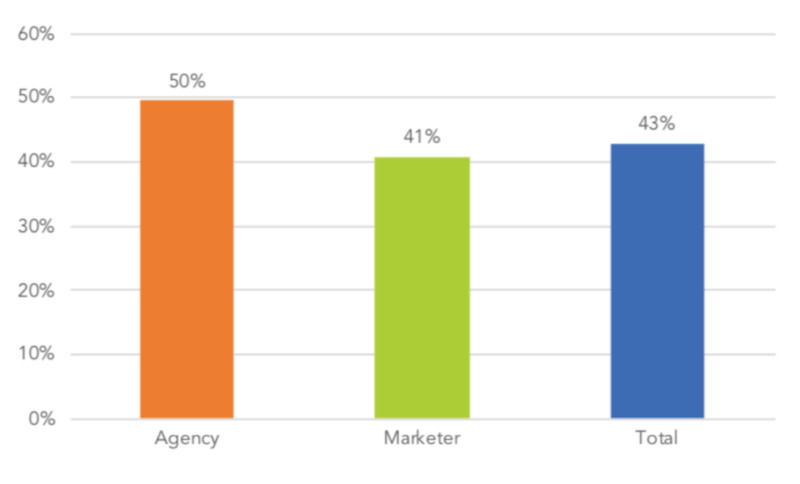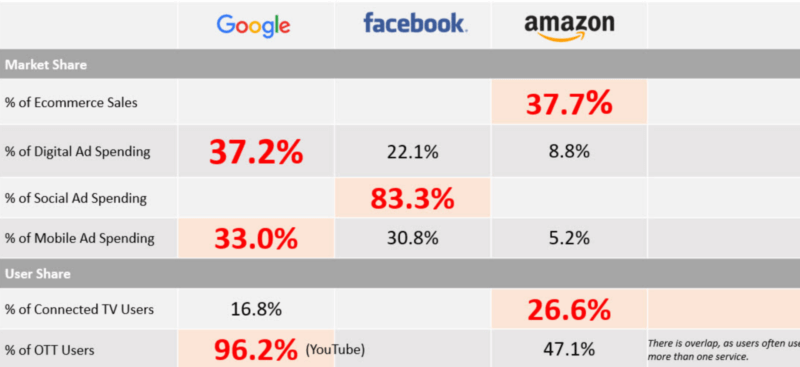DIGITAL MARKETING NEWS
Almost 70% of digital ad spending going to Google, Facebook, Amazon, says analyst firm
Google, Facebook and Amazon are the top three digital ad platforms in the U.S. Together they capture just under 70% of all digital ad dollars spent according to eMarketer.
More than two-thirds of all digital spending. The three companies are collecting 68.1% of digital ad spending says the firm’s latest estimates. It’s comparable when mobile advertising is broken out (69%). In real dollar terms this represents about $73 billion between the three companies, using the IAB’s full-year 2018 spending estimates.
EMarketer adds that Amazon owns 38% of e-commerce. Interestingly, this represents a significant revision downward from its estimate of almost 50% a year ago. The firm also says that Facebook controls 83% of social ad spending.
By comparison, the IAB said that in Q4 2018, “75% of internet advertising revenues [were] concentrated with the top 10 leading ad-selling companies.” This suggests a slightly more competitive market than eMarketer’s estimates indicate, but not by much. The IAB added that the concentration of digital ad revenue in the top 10 “has fluctuated between 69% and 77% over the past ten years.”
Self-reported ad-spending lower. A recent survey of 700 in-house and agency marketers, by Factual and Lawless Research, found that they were spending, on average, 43% of their ad budgets on Google, Facebook and Amazon.
Accordingly, there’s an apparent gap between this self-reported spending data and eMarketer’s estimates.
Annual advertising budgets spent on Google, Facebook, Amazon

Why you should care. The numbers matter. The degree of control these companies exercise — or are perceived to have — over the U.S. digital economy will be hotly debated in the coming 12-18 months, as the U.S. Department of Justice and Federal Trade Commission begin a new round of antitrust investigations of Google, Facebook, Amazon (and Apple).
The Factual and Lawless survey also found that roughly 65% of marketers are concerned (to varying degrees) and wanted alternatives to the big three, or “oligarchy” as the survey called them.












